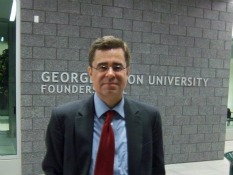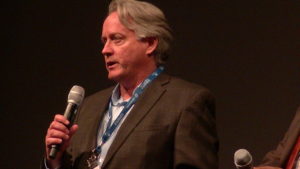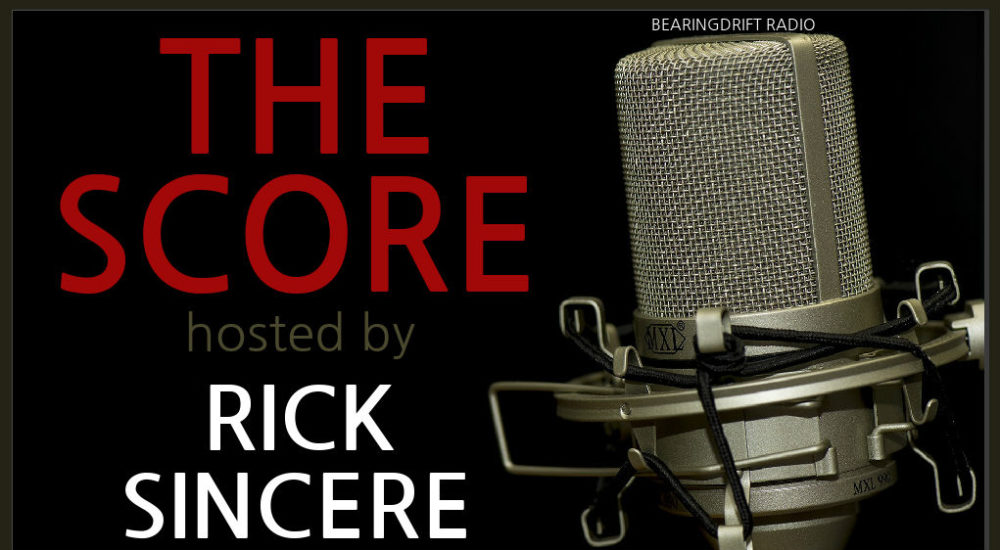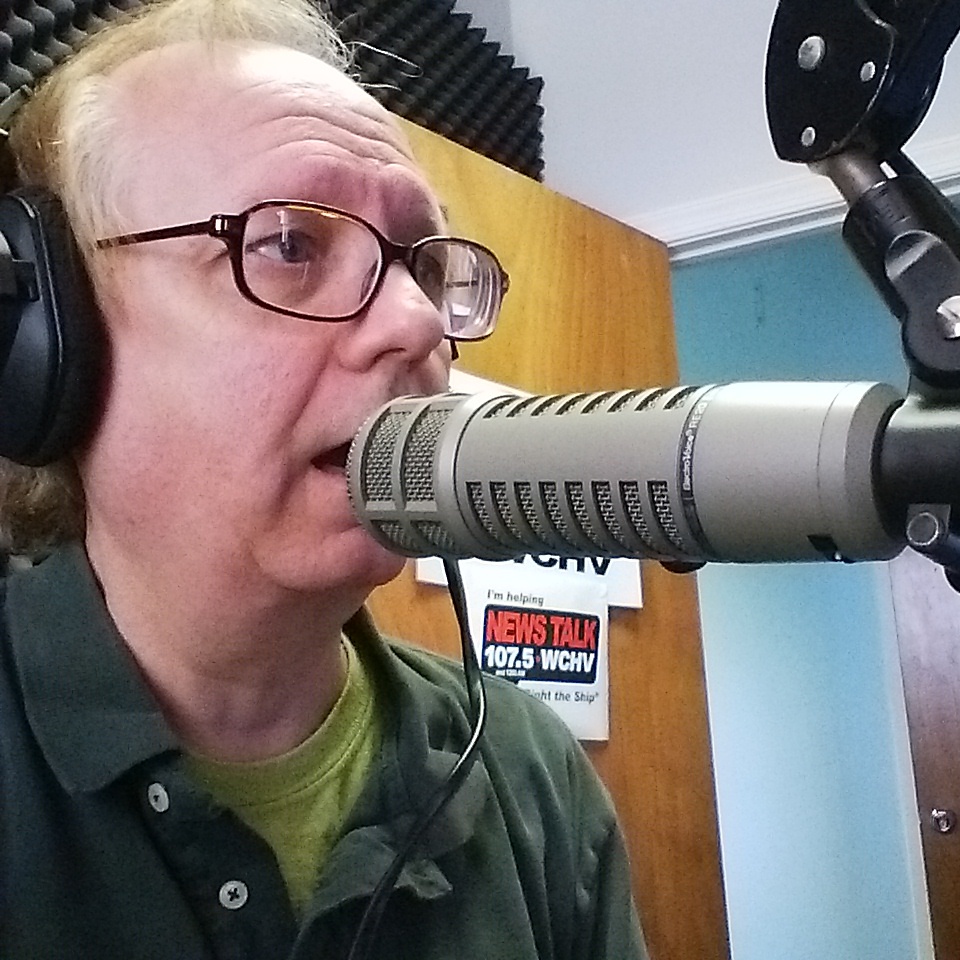The Score: Afghan Elections, Midterm Predictions, Second Amendment, Revisiting 1968
This week on The Score: Political scientist Mark Rozell previews the 2018 midterm elections. Electoral board member Jim Heilman looks at elections in Afghanistan. Documentary filmmaker Mark Herzog recalls 1968. Attorney Elliott Harding sues to protect Second Amendment rights. “Our Nixon” emerges from the archives.
Remember, remember the Sixth of November!
 Our first guest this week is political scientist Mark Rozell, who is dean of the Schar School of Government and Policy at George Mason University in northern Virginia. In my conversation with Dr. Rozell, we look at the races in Virginia’s Fifth, Seventh, and Tenth congressional districts and explore whether Virginia might be a bellwether state, one that matches or foretells the outcomes of elections elsewhere in the country.
Our first guest this week is political scientist Mark Rozell, who is dean of the Schar School of Government and Policy at George Mason University in northern Virginia. In my conversation with Dr. Rozell, we look at the races in Virginia’s Fifth, Seventh, and Tenth congressional districts and explore whether Virginia might be a bellwether state, one that matches or foretells the outcomes of elections elsewhere in the country.
Rozell is co-editor (with Kristin E. Heyer and Michael Genovese) of Catholics and Politics: The Dynamic Tension Between Faith and Power (2008), as well as (with Charles S. Bullock III) The New Politics of the Old South: An Introduction to Southern Politics (2017) and (with Clyde Wilcox) God at the Grassroots 2016: The Christian Right in American Politics (also 2017). You can find him on Twitter at @MarkJRozellGMU.
I spoke with Mark Rozell in his office on October 31st, six days before election day, about the 2018 midterm elections for Congress, so his comments will not take into account any last-minute news that might affect the minds of voters or the behavior of candidates.
Documentary Film
As this episode of The Score goes on the air, movie lovers from around the country have gathered in Charlottesville for the thirty-first annual Virginia Film Festival. This year’s festival features more than 150 films over four days with special guests that include Oscar-winning actor Christoph Waltz, director Peter Bogdanovich, and a member of the Virginia House of Delegates, former journalist Chris Hurst.
On Thursday evening, the Miller Center of Public Affairs at the University of Virginia hosted a screening of portions of the four-part documentary film series, 1968: The Year That Changed America. After the the two episodes (“Summer” and “Fall”) were shown, producer and director Mark Herzog took part in a panel discussion about how the film was made and what topics were included and excluded. The panel was moderated by Nicole Hemmer and also included Republican political consultant and Bush administration alumnus Ron Christie, author of Black in the White House: Life Inside George W. Bush’s West Wing.
[youtube https://www.youtube.com/watch?v=JrUna7YbQY4&w=560&h=315]
Immediately after the panel, I spoke to Herzog in the green room, back stage at the Culbreth Theater at UVA, to ask some more questions about the documentary film making process and whether making documentaries is a form of journalism. (That’s a question I also posed to other documentary film makers this weekend; listen to next week’s episode of The Score to hear some responses.)
 Herzog has had an eclectic career as a director and producer. His TV and film credits include Tiburones: The Sharks of Cuba (a 2015 episode in the long-running “Shark Week” series); CNN’S The Sixties (sharing executive producer billing with Tom Hanks); Lady Valor: The Kristin Beck Story; and David McCullough: Painting with Words, among many others. (His IMDB page lists 163 producing credits, plus a few miscellaneous credits.)
Herzog has had an eclectic career as a director and producer. His TV and film credits include Tiburones: The Sharks of Cuba (a 2015 episode in the long-running “Shark Week” series); CNN’S The Sixties (sharing executive producer billing with Tom Hanks); Lady Valor: The Kristin Beck Story; and David McCullough: Painting with Words, among many others. (His IMDB page lists 163 producing credits, plus a few miscellaneous credits.)
Running Afghan Elections
 This is a busy election year. Congressional elections in Virginia and the United States are only a small part. In recent weeks, there was a presidential election in Brazil, parliamentary elections in Gabon, a referendum to repeal Ireland’s blasphemy law, and local elections in Germany.
This is a busy election year. Congressional elections in Virginia and the United States are only a small part. In recent weeks, there was a presidential election in Brazil, parliamentary elections in Gabon, a referendum to repeal Ireland’s blasphemy law, and local elections in Germany.
There are also parliamentary elections going on in Afghanistan. The Score’s next guest, Jim Heilman, has traveled the world to organize and monitor elections in emerging democracies. He’s also secretary of the electoral board in Albemarle County, Virginia. I asked Jim about his experiences in helping Afghanistan run the country’s first democratic elections in forty years.
Younger Guns
 Elliott Harding has been a guest on The Score at least twice before. He’s an attorney in Charlottesville and is always looking for ways to expand the legal envelope.
Elliott Harding has been a guest on The Score at least twice before. He’s an attorney in Charlottesville and is always looking for ways to expand the legal envelope.
Last week, Harding announced that he was suing the federal government on behalf of two young adults whose Second Amendment rights are circumscribed by a law that prohibits them from buying handguns from licensed gun dealers. (The current plaintiffs include Tanner Hirschfeld, a University of Virginia undergraduate, and Charlottesville resident Natalia Marshall.) In this interview, he explains the reasoning behind the law suit and what the next steps will be.
A crowdfunding effort to support this lawsuit is here.
From the Archives
Since we had one guest this week from the current Virginia Film Festival, I looked back to find an interview on a related topic from an earlier festival. I found a conversation with law professor Brian Frye, a producer of the 2013 CNN documentary, Our Nixon, which compiles clips of home movies taken by Richard Nixon’s White House aides, John Ehrlichman, H.R. Haldeman, and Dwight Chapin. (It turns out that Chapin is one of the “talking heads” in Mark Herzog’s documentary about 1968.)
As I reported at the time, based on our interview:
“Haldeman, Ehrlichman, and Chapin,” he explained, “were receiving free Super-8 film from the Naval Photographic Center and also free processing and printing. I’m pretty sure that what was happening was Haldeman was distributing the films and after they were shot, he was collecting them, dropping them off at the Naval Photographic Center and then providing prints to all of his friends, so he probably got three prints of everything, more or less.”
When Ehrlichman, the president’s domestic policy advisor, resigned as a result of the Watergate investigation, “he left in his office prints of the Super-8 films — second- and third-generation prints,” said Frye. “Those were confiscated and ultimately became part of the Watergate investigation collection that went to the National Archives, so they were placed into the public domain in that way.”
The movies remained far from public view, however, because “they don’t really relate to the abuse of power issues that people are most interested in. They were relatively low priority on the preservation ladder” for archivists.
Frye learned of the films’ existence shortly from the film preservationist who “told me about his preservation work and showed me one of the reels, which I thought was fascinating but I didn’t have the resources to make a transfer at the time. These were preserved but there weren’t access copies available.”
After writing an article about the newly discovered movie reels for the film journal, Cineaste, Frye met his eventual producing partner, Penny Lane, in 2008.
They decided to collaborate on a documentary based on the movies but they did not know what the entire content was. Taking a risk, they invested $20,000 to have the films transferred to video so they could examine them in detail.
Next week, The Score will return with more interviews from the Virginia Film Festival (Oscar winning director Paul Wagner will talk about his new documentary film about pioneering football players at the University of Kentucky, Black in Blue, and local Charlottesville filmmaker Chris Farina describes his latest, Seats at the Table, about UVA students learning about Russian literature with prison inmates) as well as conversations with Young Voices’ Jake Grant and the Cato Institute’s Matthew Feeney.
Don’t forget to leave comments (below) and tell your friends where to find us. If you know any local radio program directors, let them know The Score is available for broadcast (it’s already heard Saturday mornings on WINC-AM&FM in Winchester, Virginia). Come back every week to listen to more news, reviews, and interviews.


